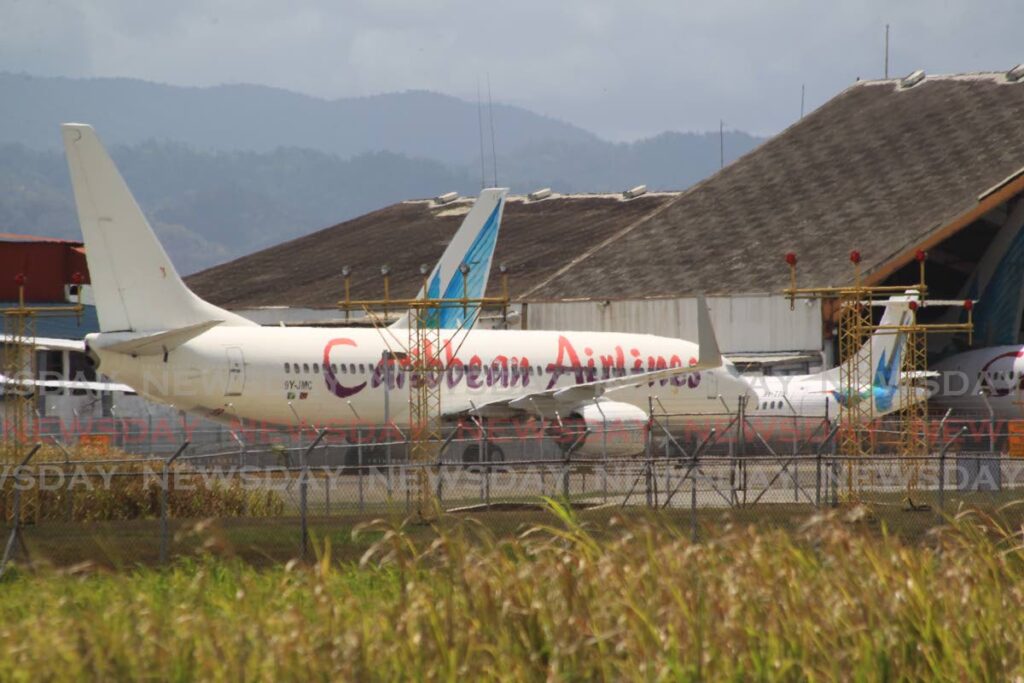CAL avoids comment on loss-making domestic route

STATE-owned Caribbean Airlines (CAL) said it has no comment to make on recent claims made by former Civil Aviation director general Ramesh Lutchmedial about the loses it incurs during operations on the domestic airbridge.
In a brief response to questions from Newsday on Friday, the airline said it is standing by the comments it made about its domestic operations on August 4.
CAL added, "Nothing further to add at this time."
In a statement on August 8, Lutchmedial claimed that CAL incurs a loss of approximately $40,800 on each flight between Trinidad and Tobago.
He said, "The solution may well lie in a two-tier fare system, a subsidised fare for Tobago residents and an economic fare for non-residents." Lutchmedial reiterated his claims in a subsequent statement on August 16.
In its August 4 statement, CAL said a safe and reliable airbridge service is a priority for the airline and a critical part of the transport service between Trinidad and Tobago.
"There are several factors that must be considered when looking at the airline’s commercial operations, both international and domestic."
CAL's fleet comprises seven ATR turboprop aircraft and nine Boeing 737- 8 jet aircraft.
Three to four ATR's operate the domestic airbridge at any given time.
Each Wednesday and Thursday, a 737-8 operates to/from JFK International Airport, New York via Tobago.
CAL said, "This provides an additional 160 seats each way."
The airline's jets are not routinely used on the domestic airbridge owing to the high operational costs and given the short distance (52 miles) between Trinidad and Tobago.
Since TT's borders reopened last July, CAL has consistently increased domestic flights and added airlift operationally, within the limits of its resources.
The airline said it continues to communicate with its stakeholders, keeping them advised about the factors impacting its operations."
As it continues to recover from the impact of the covid19 pandemic, CAL continued, there is a need for a balance in using its resources on revenue generating routes and the airbridge.
CAL highlighted some factors which could result in losses in its domestic operations.
They include high operating costs (US$17,306 per flight hour), low prices which do not reflect actual market value and one-way peak demand periods outside of the July-August school holiday period.
The airline's total operational cost for the airbridge as at June was: US$18, 777, 648. The cost per flight hour during that period was US$ 17,306.
CAL said, "The high costs are driven by the frequency of flights and the short distance (52 miles) leading to an undesirable low block hour utilisation of aircraft and crews and maintenance costs – US$17,306 per flight hour."
Despite this, the airline continued, thee domestic schedule (inclusive of peak travel periods) considers "the essential nature of the service, events and activities in Tobago, the total number of passengers over a 12-month period and other information relevant to its operation."
Between July 17, 2021 and July 31, 2022, CAL operated 6,527 flights between Trinidad and Tobago.
A total of 416, 780 passengers were transported on those flights
CAL said a total of 120,860 seats outside of additional ad-hoc flying. The latter may involve the use of jet services depending on the circumstances.

Comments
"CAL avoids comment on loss-making domestic route"